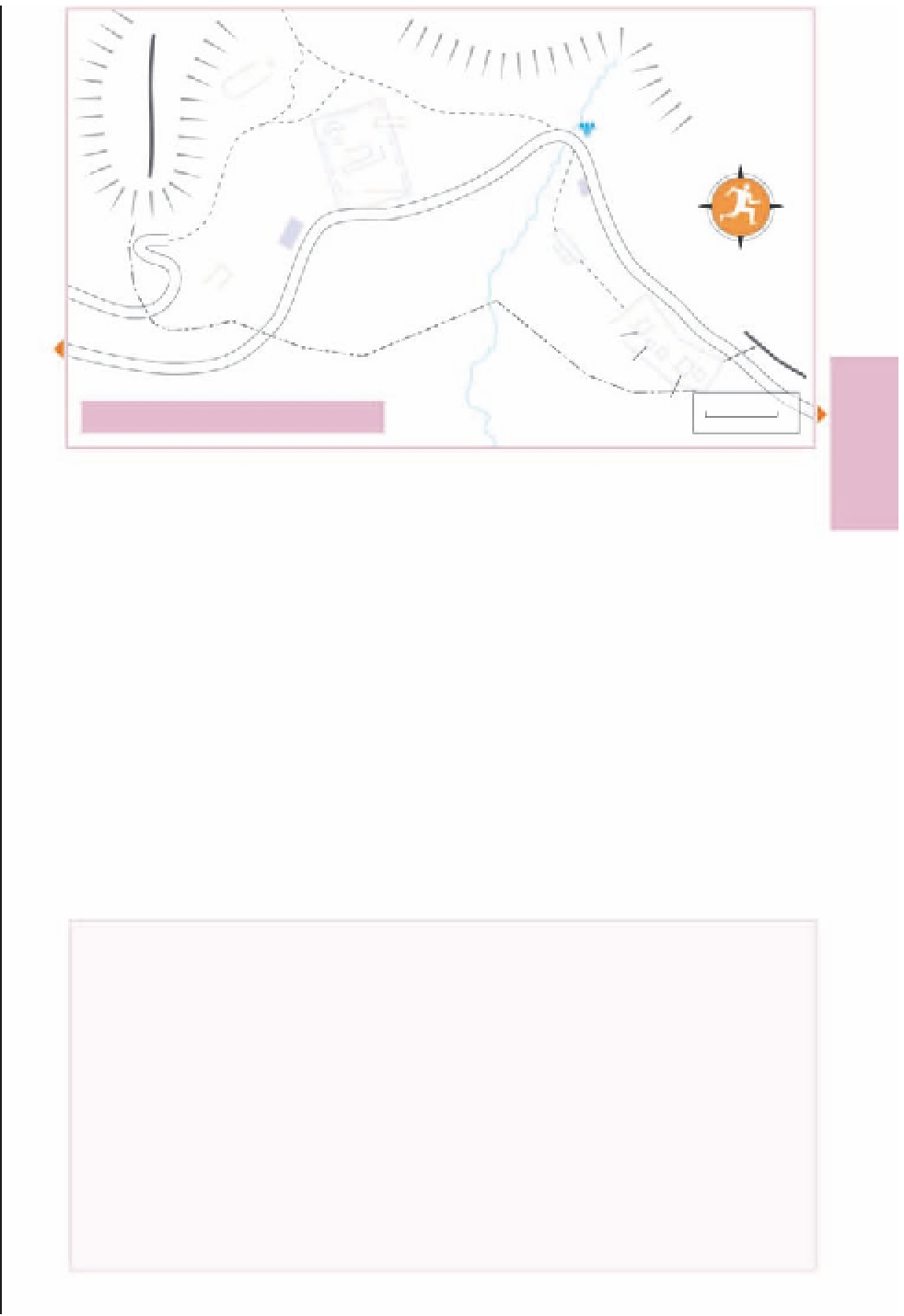Travel Reference
In-Depth Information
Stadium
MOUNT
PARNASSÓS
Ruins of
Walls
SACRED PRECINCT
(See detailed plan)
CASTALIAN
SPRING
N
Café
Museum
Gymnasium
Synedrion
Temple of
Athena
Pronaia
Tholos
MARMARIA
3
0
200
New Athena
Temple
DELPHI: THE SITES
metres
who supposedly arrived in the form of a dolphin - hence the name Delphi. Thereafter,
the
Pythian Games
were held periodically in commemoration, and perhaps also to
placate the deposed deities. Delphi subsequently became one of the major sanctuaries
of Greece, its oracle widely regarded as the most truthful in the known world.
he
influence
of the oracle spread during the Classical age of colonization and its
patronage grew, peaking during the sixth century BC, with benefactors such as King
Amasis of Egypt and the hapless King Croesus of Lydia. Delphi's wealth, however,
made it vulnerable to Greek rivalries; by the mid-fifth century BC, the oracle became
the object of a struggle between Athens, Phokia and Sparta, prompting a series of
Sacred Wars
. These culminated in Philip of Macedon invading southern Greece,
crushing the city-states in 338 BC at the
Battle of Chaeronea
(see p.213). Delphi's
political intriguing was effectively over.
Under
Macedonian
and later
Roman
rule, the oracle's role became increasingly
domestic, dispensing advice on marriages, loans, voyages and the like. The Romans
thought little of its utterances, rather more of its treasure: Sulla plundered the
sanctuary in 86 BC, and Nero, outraged when the oracle denounced him for
murdering his mother, carted away five hundred bronze statues. Upon the proscription
of paganism by Theodosius in 391 AD, the oracle ceased.
THE WORLD'S SOOTHSAYER
For over a millennium, a steady stream of pilgrims converged on Delphi to seek divine
direction in matters of war, worship, love or business. On arrival they would pay a set fee (the
pelanos
), sacrifice a goat, boar or even a bull, and - depending on the omens - wait to submit
questions inscribed on lead tablets. The Pythian priestess, a village woman over fifty years of
age, would chant her prophecies from a tripod positioned over the oracular chasm. An
attendant priest would then “interpret” her utterings in hexameter verse.
Many
oracular answers
were pointedly ambiguous: Croesus, for example, was told that if
he commenced war against Persia he would destroy a mighty empire; he did - his own. But
the oracle would hardly have retained its popularity for so long without offering
predominantly sound advice, largely because the Delphic priests were better informed than
any others of the time. They were able to amass a wealth of political, economic and social
information and, from the seventh century BC onwards, had their own network of agents
throughout the Greek world.

































